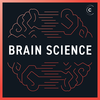Connecting the dots in public
Today we’re joined by Shawn “swyx” Wang, also known as just “swyx” — and we’re talking about his interesting path to becoming a software developer, what it means to “learn in public” and how he’s been able to leverage that process to not only level up his skills and knowlege, but to also rapidly advance his career. We cover Swyx’s recent writing on the light and dark side of the API economy — something he calls “living above or below the API,” his thoughts on Cloudflare eating the cloud by playing Go instead of Chess, and we also talk about the work he’s doing at Temporal and how’s taking his frontend skills to the backend.





